Insects have been one of the most neglected monster types over the history of Yu-Gi-Oh! Despite some cool promos, some promising effects, and a 1900 ATK beatstick, they've been maligned by most duelists and regarded as unworthy of tournament play. But they shouldn't be, especially with the release of Ultimate Insect LV7 in The Lost Millennium!
The main problem with trying to build an Insect deck lies in attempting to find a satisfactory focus. Like I always say, if you don't have a specific set of reasons for running a theme deck, then you shouldn't be running one. Here's the short note I found attached to an interesting Insect-based deck in my inbox last week.
I love insects and Yu-Gi-Oh! so I created an Insect deck.
Rosenberg, Mike helped me but maybe you have some good advice?
Thanks!
—Galmar D., Poland
Here's the decklist Galmar sent me:
Galmar's Insect Deck
40 cards
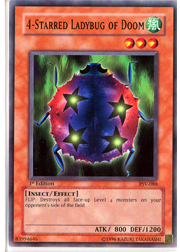
Monsters: 20
Spells: 13
Traps: 7
The deck reads like a solid who's who of Insect-type monsters. If all the Insects in Yu-Gi-Oh! threw a party, this is probably what the guest list would look like. That's all well and good until they have to put up a united front on the battlefield—this deck uses too many good ideas and doesn't have enough focus. The size; the balance of monsters, spells, and traps; and the core ideas are absolutely fine, but we need to instill some discipline for this deck to be at its best.
And hey, it's me! There's going to be some tech spiking the proverbial punch. Let's get this party started!
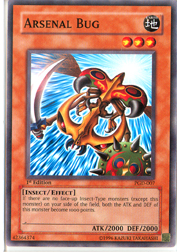
and
Swarm of Locusts are the first to go. I'm going to be turning this into a battle-oriented deck, and while I like these cards in a deck that can protect them on a reliable basis, this deck won't be able to do that. With cards like
Arsenal Bug in the deck, we want to keep our sitting ducks to a minimum. Not only do we risk giving up card advantage in the battle phase, but we also risk weakening
Arsenal Bug and then losing even more. Words can't describe how much it hurts to lose two cards in a single battle phase with no trades going on.
Next I'm going to remove
Ultimate Insect LV1. We can search for its LV3 counterpart with
Howling Insect, so we really don't need the LV1 version. Relying on
Howling Insect will let us get LV3 into play after our opponent's final attack in many cases, and that's going to be a lot more productive in the long run than trying to help LV1 survive an entire turn to turn into LV3 and claim its effect. With the introduction of Ultimate Insect LV7, we have something bigger to aim for, and while running LV1 might have made sense when the final goal was LV5, we now need to step up our ambitions.
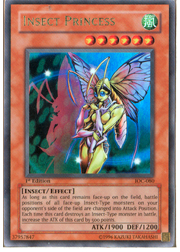
is serious tech against other Insect decks. Sadly, the odds are good that yours will be the only Insect deck at any given tournament, and combining the Princess with
DNA Surgery is a risky over-investment both on the field and in the decklist. Its matronly counterpart,
Insect Queen, also needs to be removed. While the tokens
Insect Queen generates are interesting, it immediately jams them into its gaping maw the moment it attacks. It essentially has no effect unless you're using it to feed
Cannon Soldier or something like that, and it's hard to rationalize as a producer of tribute fodder since the card itself costs so much in tributes. I'd rather have
Blue-Eyes White Dragon out for the same cost. Sure,
Insect Queen can be brought out with
Pinch Hopper, but now that we've got larger and more impressive mandibled thugs to draw upon, namely the Ultimate Insect line, the Queen's day has really passed.
Without the lineup of higher-level monsters,
Insect Imitation is now pretty useless. We don't have a ton of level 4 monsters to Imitate into
Ultimate Insect LV5, and we have nothing of level 6 to trade in for Ultimate Insect LV7. Besides that, it's a conditional card. If it at least allowed you to search out and summon a monster of the designated level or any level below that, it would be flexible. But it doesn't, so you're just adding another card to the summoning of monsters that were already going to be costing you a monster to summon.
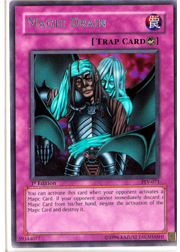
is sort of a metagame call. I don't see what would necessitate it in this deck over another card. It's a possible side deck candidate, but for now, I'm going to take it out of the main deck.
Finally, I'm going to remove
Torrential Tribute.
Torrential Tribute is a contingency card, and while it can give card advantage to reactive or versatile decks that don't depend on building board presence, this deck isn't like that. You want monsters on the field to fuel
Arsenal Bug, your tributes, and the potential to summon those tributes with
Howling Insect and
Pinch Hopper.
Torrential Tribute is good. It can give card advantage. However, this does not make it an automatic inclusion in every deck out there.
We've got ten slots of wiggle room—looking good! One more copy of
Howling Insect and
Pinch Hopper are going to work wonders in this deck, giving increased access to just about anything we'd want to be special summoning. Among those possibilities is—you guessed it—Ultimate Insect LV7! If you bring it out with a LV5, that's great, and you get a killer effect. But even if you just
Pinch Hopper it onto the field, it's simply enormous, and that's often good enough. With an ATK that can bring down
Jinzo,
Airknight Parshath, and most other big tributes, it's a great addition to this kind of deck and gives Insect strategies something to work towards over the course of a game.
To facilitate Ultimate Insect LV7's awesome effect, I'm also going to add one more copy of
Ultimate Insect LV3 and another
Ultimate Insect LV5. Going up to three tribute monsters is a bit risky, but it's going to be worth it once you start your chain of special summons. If you see them all (or even just two of them) in your opening hand, then you can salvage that situation with
Lightning Vortex,
Graceful Charity, or a single copy of
Pinch Hopper. You do have options, and
Cyber Jar can be an equalizer as well.
Because this deck can special summon
Man-Eater Bug and
4-Starred Ladybug of Doom into defense position, it doesn't need
Book of Moon as much as a deck relying on, say,
Mystic Tomato or
Shining Angel to grab key cards. That's right,
Howling Insect can bring monsters into play in face-up defense position, not just face-up attack position. That's good news for you when you're on defense! Still, I like the concept of a second copy of
Book of Moon in this deck. It can interrupt attacks, flip
Man-Eater Bug or Ladybug back face down, and accomplish any number of other tricks. I would suggest, however, that the side deck contain two copies of
Smashing Ground and two copies of
Enemy Controller for different matchups.
We've got three slots left, so hey, it's time for some tech! Did you notice that I haven't added
Tribe-Infecting Virus or
Breaker the Magical Warrior to the deck? That's because without those two cards, virtually everything in here is an Insect. To take advantage of that, I want to add three copies of
Rivalry of Warlords to the deck. It techs
Scapegoat really well (who wants to give up a real monster for sheep?), dominates against the random Chaos decks floating around, and punishes any opponent not playing a well-themed deck—which is basically 90 percent of any given tournament field.
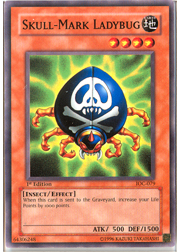
Here's what the final changes look like!
+1 Ultimate Insect LV7
Galmar's Insect Deck: Jason's Fix
40 cards
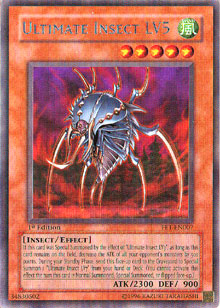
Monsters: 20
1 Ultimate Insect LV7
Spells: 13
Traps: 7
The deck plays relatively quickly now, essentially acting like a tribal Beatdown deck in the opening and early game and then taking off in the mid-game with the beefier versions of Ultimate Insect. Let's break it down.
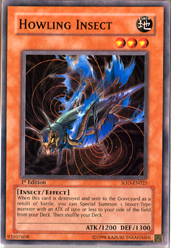
In the opening, you either want to see
Howling Insect or
Pinch Hopper in your hand, and you want to summon one of them immediately. Which you want to summon depends on your opening hand. If you have a tribute monster to summon with the Hopper, then you may want to seriously consider dropping it early and overwhelming an opponent. If not, you definitely want to start with
Howling Insect.
Sangan is also a very passable opening, but ideally you'll maintain board presence going into turn 2, just like any other battle-based deck.
In the early game, you want to play the deck just like any other Beatdown variant, making trades and taking card advantage whenever possible. You're building towards the deployment of the Ultimate Insect line, and it's important that you understand what your opponent is aiming to do in the mid-game—if you're playing against a Chaos deck, have an answer ready. You've got a lot of raw combat power and a lot of cool tricks, and the early game is where you need to employ them to catch the opponent off-guard.
Ideally, you'll have an advantage moving into the mid-game. Now, your disruptive tricks, like
Man-Eater Bug and
4-Starred Ladybug of Doom, will go into full-out control mode attempting to pin down your opponent. Try to save
Rivalry of Warlords for a time in which it can give card advantage, but aim to use it now or in the early game. It won't do much in the late game unless you're already in a poor position, and while it will help in such a case, you're not aiming to play yourself to a disadvantage and then recover.
In the late game, this deck relies on its raw beatdown potential, its maintenance of board presence, and its ability to quickly drop big monsters with
Pinch Hopper. Remember that
Pinch Hopper's timing is very narrow. You won't get its effect if you tribute it off for a summon. Still, a single
Pinch Hopper and a large tribute can win the game against most opponents when you're in a topdecking situation.
That's it for this week! Check in next Tuesday as we continue looking at how we can fix up decks with hot new cards from The Lost Millennium!
—Jason Grabher-Meyer
Are you interested in seeing your deck featured in this column? Send a decklist formatted like the one in this article, your name, and your hometown to Jason@metagame.com, and your deck might be used in a future Apotheosis article!